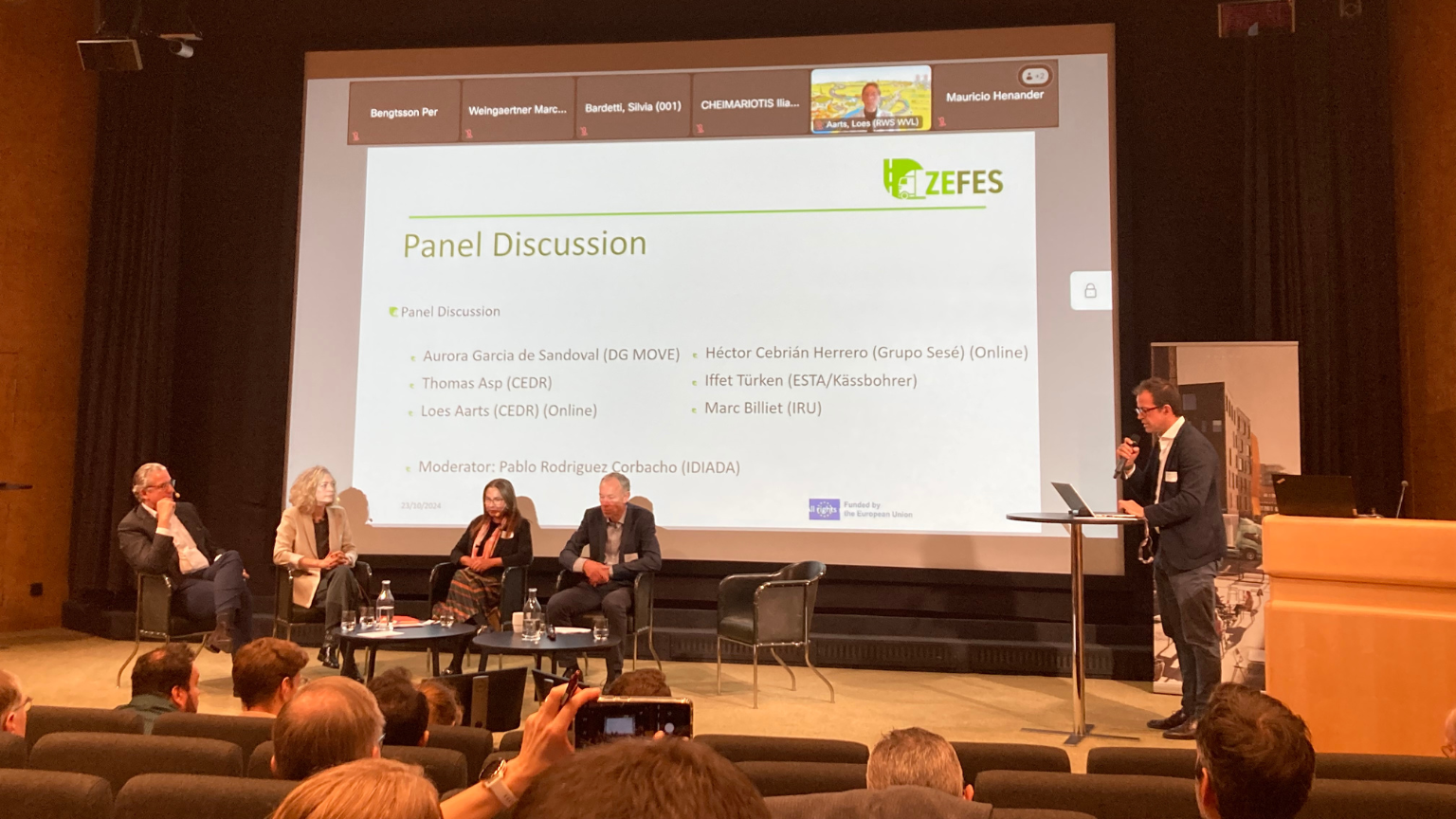Partners and stakeholders of ZEFES – an EU-funded project testing electric and hydrogen long-haul trucks, with IRU playing a key role – came together for the second annual symposium to discuss key updates, challenges and future directions.
The ZEFES project aims to catalyse the decarbonisation of long-haul freight by showcasing real-world applications of both battery-electric vehicles (BEVs) and fuel cell electric vehicles (FCEVs) across the EU. IRU has a pivotal role in this project, committed to exploring all options that will decarbonise transport.
The project’s partners met for the second time with experts at the annual ZEFES Stakeholder Symposium, hosted by Volvo Trucks in Gothenburg, Sweden, to present the progress achieved so far, including demonstration goals scheduled for 2025. Volvo’s BEVs and FCEVs were on display at the event.
IRU opened the first session with a presentation on the challenges concerning weights and dimensions, focusing on five aspects: decarbonisation, operational efficiency, road safety, combined and intermodal transport, and infrastructure. The need for additional weights and dimensions allowances for zero-emission vehicles were discussed. The participants also elaborated on ongoing efforts to standardise ZEFES vehicles across participating countries.
IRU EU Goods Transport Associate Director Marc Billiet said, “The road transport sector is committed to reaching carbon neutrality by 2050. But achieving decarbonisation targets requires appropriate enablers and incentives. One key issue facing battery-electric vehicles is the added weight of the battery and the additional length of the technology. The revision of the Weights and Dimensions Directive should factor in this key challenge.”
Following the opening, a panel discussion was held with the European Commission, road infrastructure managers, original equipment manufacturers and operators on the upcoming revision of the EU Weights and Dimensions Directive.
The second panel focused on the charging infrastructure required for the widespread adoption of BEVs and FCEVs, and the need for an EU plan based on the expected energy demand.
The final panel focused on the business and operational aspects of zero-emission heavy-duty vehicles. It featured IRU member DKV Mobility as well as Colruyt Group, Gruber Logistics and Volvo.
More about ZEFES
ZEFES will help pave the way for long-haul BEVs and FCEVs to become more reliable options for a wider range of goods transport operations.
The project will also map recharging/refuelling points and new charging concepts (e.g. Megawatt Charging), as well as create fleet management tools to support long-haul BEVs and FCEVs used in logistics supply chains.
As part of the project, IRU and its members are working to identify and communicate what is needed for a mass roll-out of zero-emission vehicles and support the type-approval process and vehicle demonstration preparations.
IRU members are invited to attend the third stakeholder symposium in October 2025.
Learn more about ZEFES.


